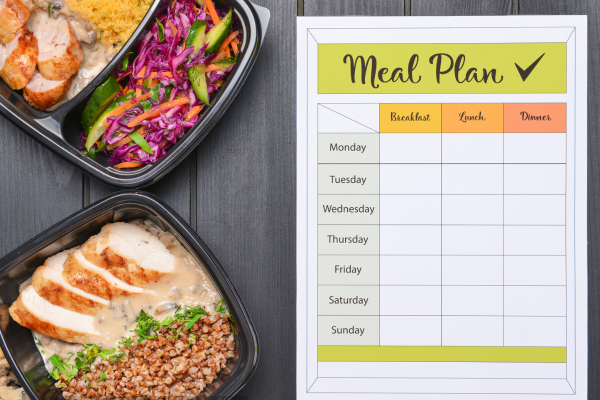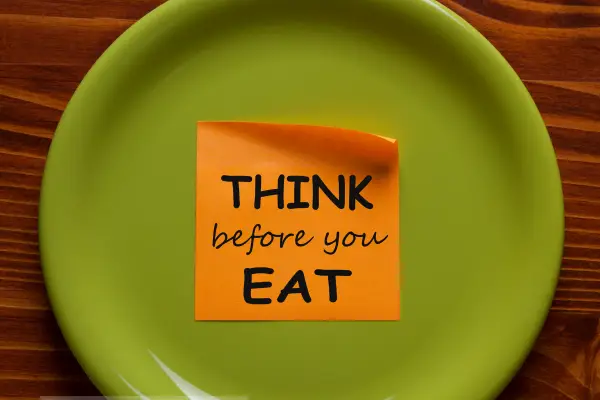Table of Contents
Sustainable weight loss is more than just losing pounds quickly. It’s about creating long-term habits that support your overall health. When you focus on creating a meal plan, you not only set yourself up for success, but you also improve your relationship with food. This article will guide you through creating a sustainable weight loss meal plan, offering practical advice on balanced nutrition, portion control, and healthy eating habits.
Balancing Nutrition: The Foundation of a Healthy Meal Plan
A balanced diet is crucial for sustainable weight loss. You need to consume a variety of foods to ensure your body gets all the essential nutrients. Here’s how you can balance your meals:
- Include all food groups: Make sure each meal includes proteins, carbohydrates, and healthy fats.
- Focus on whole foods: Prioritize fruits, vegetables, whole grains, and lean proteins over processed foods.
- Limit added sugars: Reduce your intake of sugary snacks and beverages.
Balancing your meals will help you feel full longer and keep your energy levels stable throughout the day. This not only supports weight loss but also promotes overall health.
Portion Control: Eating the Right Amount for Your Goals
Portion control is key to managing calorie intake without feeling deprived. Understanding the right portion sizes can help you avoid overeating. Here are some tips for controlling portions:
- Use smaller plates: This can make portions appear larger, tricking your brain into feeling satisfied with less food.
- Read labels: Pay attention to serving sizes on food packaging to understand how much you’re eating.
- Listen to your body: Stop eating when you’re satisfied, not when you’re full.
By mastering portion control, you can enjoy all your favorite foods in moderation, making it easier to stick to your meal plan.
Healthy Eating Habits: Building a Lifestyle, Not a Diet
Creating healthy eating habits is essential for maintaining your weight loss in the long term. It’s not just about what you eat, but how and when you eat. Consider the following habits:
- Eat mindfully: Focus on your food without distractions like TV or phones.
- Plan your meals: Prepare meals in advance to avoid last-minute unhealthy choices.
- Stay consistent: Try to eat at the same times each day to regulate your appetite.
Building these habits will make it easier to maintain your weight loss and avoid the common pitfalls of yo-yo dieting.
Incorporating Healthy Snacks: Fueling Your Body Between Meals
Snacking can be part of a healthy diet if done correctly. Healthy snacks can keep your metabolism active and prevent overeating during meals. Here’s how to choose the right snacks:
- Opt for nutrient-dense snacks: Choose snacks that provide vitamins, minerals, and fiber, like fruits, nuts, and yogurt.
- Watch portion sizes: Even healthy snacks can add up if you eat too much. Stick to small portions.
- Avoid empty calories: Stay away from snacks high in sugar and fat, like chips and candy.
Including healthy snacks in your meal plan can help you stay on track and avoid hunger-driven unhealthy eating.
Low Sugar Diet: Reducing Hidden Sugars for Better Results
Reducing sugar intake is one of the most effective ways to lose weight and improve health. Hidden sugars in processed foods can add up quickly, sabotaging your efforts. Here’s how to cut back:
- Read ingredient labels: Look for hidden sugars in foods like sauces, bread, and snacks.
- Choose natural sweeteners: Opt for honey, maple syrup, or fruits instead of refined sugar.
- Limit sugary drinks: Replace soda and juice with water, herbal tea, or black coffee.
By lowering your sugar intake, you’ll reduce your calorie intake and minimize cravings, helping you stick to your weight loss plan.
Clean Eating: Embracing Whole, Natural Foods
Clean eating focuses on consuming whole, unprocessed foods. This approach not only supports weight loss but also boosts your overall health. Here are some clean eating tips:
- Avoid processed foods: Stick to fresh, whole foods that are free from additives and preservatives.
- Cook at home: Prepare your meals from scratch to control ingredients and portion sizes.
- Focus on quality: Choose organic and locally sourced produce when possible.
Adopting a clean eating lifestyle can help you lose weight naturally and maintain your results long-term.
Creating a Meal Plan: Practical Steps to Get Started
Creating a sustainable weight loss meal plan doesn’t have to be complicated. By following a few practical steps, you can set yourself up for success. Here’s how to start:
- Set clear goals: Define what you want to achieve with your meal plan, whether it’s weight loss, muscle gain, or improved health.
- Plan your meals for the week: Decide what you’ll eat each day and make a shopping list to ensure you have all the ingredients.
- Prep in advance: Prepare meals and snacks ahead of time to avoid making unhealthy choices when you’re busy.
A well-thought-out meal plan will help you stay on track and make healthier choices easier.
Long-Term Success: Staying Motivated on Your Journey
Maintaining weight loss is often the most challenging part of the journey. Staying motivated requires a combination of mindset and strategy. Consider these tips:
- Celebrate small wins: Acknowledge your progress, even if it’s not on the scale.
- Find a support system: Surround yourself with people who encourage and support your goals.
- Be patient: Understand that sustainable weight loss takes time. Focus on progress, not perfection.
By staying motivated and committed, you can achieve long-term success and maintain your weight loss for life.
Conclusion: Embracing a Healthier Lifestyle
Creating a sustainable weight loss meal plan is about more than just shedding pounds. It’s about embracing a healthier lifestyle that nourishes your body and mind. By focusing on balanced nutrition, portion control, and healthy eating habits, you can achieve lasting results that go beyond the scale. Remember, the key to success is consistency and patience. Make small, sustainable changes, and you’ll be on your way to a healthier, happier you.










